How to Create Your Own Mentorship Opportunities When They Aren’t Readily Available in Your Immediate Network
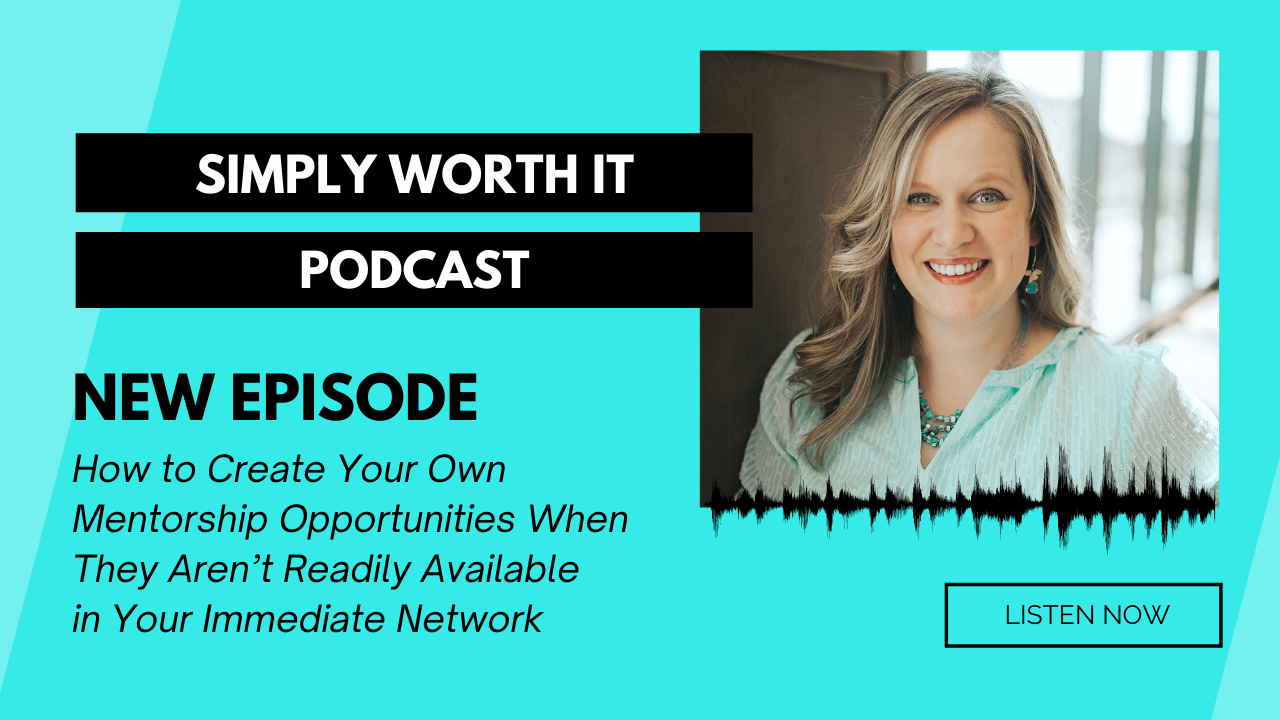
Mentorship is one of the biggest drivers of job satisfaction for female physicians.
What can we do if there aren’t any formal mentorship opportunities with our employers, or if their programs are more lip service than reality?
The good news is, powerhouse physicians are around us, and many of them are readily available to start mentoring us.
Where can we find them and how do we make the ask?
In this episode, I talk about finding mentors in our immediate and extended networks.
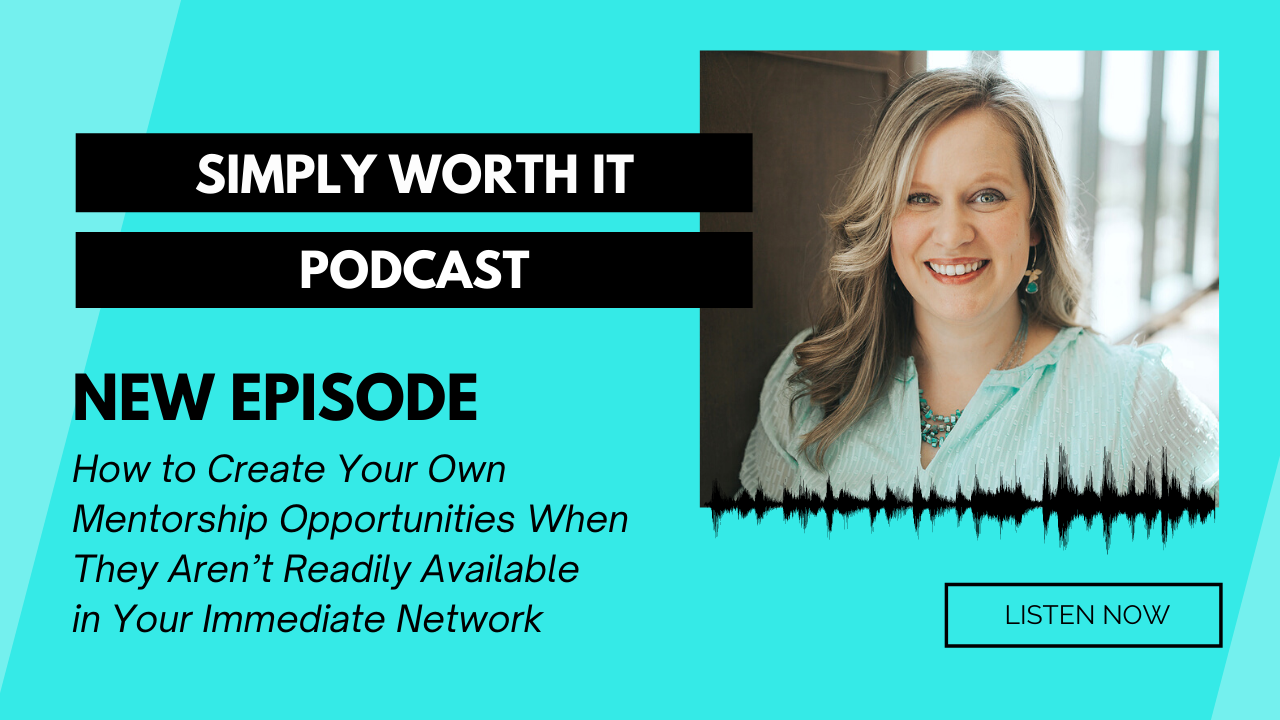
Three Things You’ll Learn In This Episode
- How to tap into a wider network to find your mentor
What are some of the places you can run into potential mentors both in real life and virtually? - Why more prominent people might not have the capacity for mentorship
How do we find a mentor who actually has the time, energy and desire to be part of our career trajectory? - The best environments to talk to a potential mentor
Once we’ve identified the right mentor, how do we actually approach them and make the ask?
You Can’t Change Your Results Without Changing Your Mindset: How to Get Rid of That Persistent New Year’s Resolution for Good

The beginning of a new year always brings up resolutions and goals we want to accomplish, but what happens when the same resolution keeps rearing its head every single January?
Well in my case, that persistent resolution is not overworking - something that should be easy with the contract I negotiated for myself, but it’s not. I still find myself feeling overwhelmed and overworked. The truth is: there’s a lot more to my overworking than my circumstances, it has a lot to do with my brain and the beliefs it’s clinging onto.
So how do we uncover why we struggle to accomplish what we want? Why are our thoughts so vital to what our results end up becoming?
In this episode, I’m going to share how to finally overcome a persistent New Year’s resolution through the lens of the mental model I’m personally working through.
Three Things You’ll Learn In This Episode
- The root of all our unchanged behaviors
Why do we cling onto beliefs that lead to us thinking that overworking is okay? - Why our t...
Anatomy of a Transformational Conversation: Words That Create Curiosity and Words That Shut Down All Opportunities for Connection w/Ali Novitsky
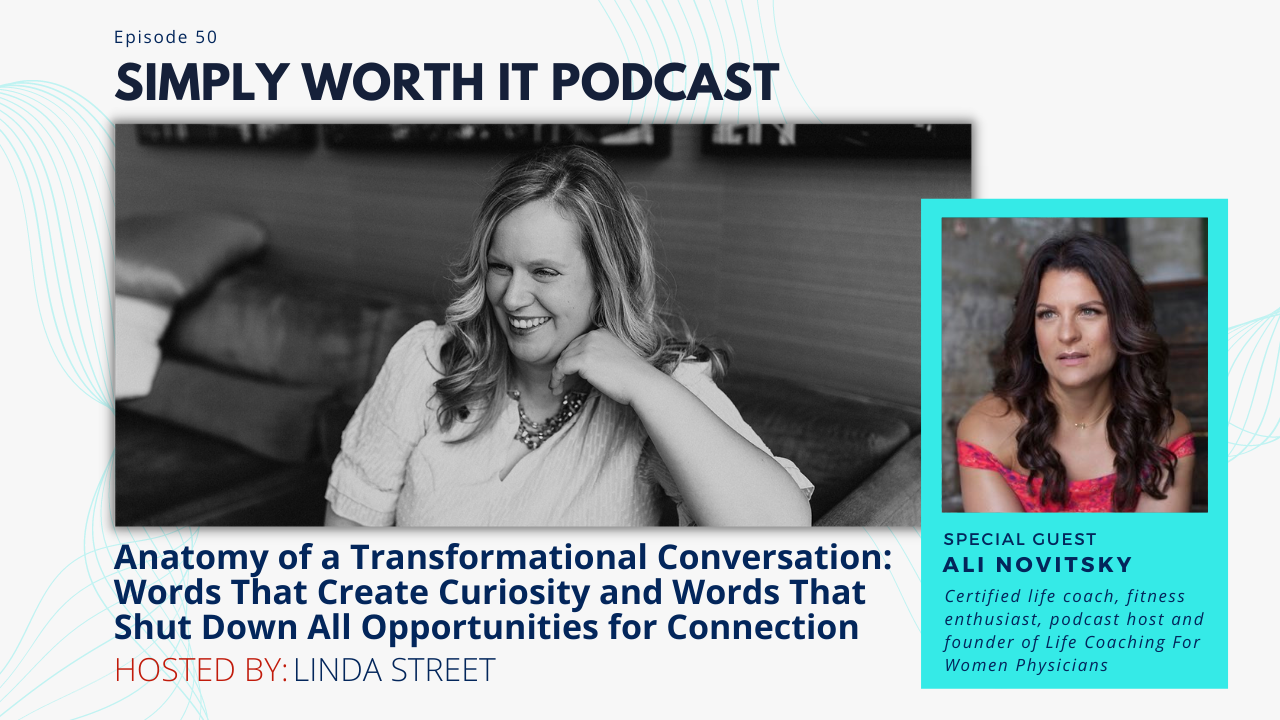
In the last episode, we established that the conversations we have can either create connection or completely shut it down. That difference ultimately comes down to the words we use, and the kinds of chemicals they shoot off in our brains.
Some words and conversations can trigger our fight or flight response, while others trigger happy neurochemical space where transformation is possible.
How do we learn to choose our words more wisely in negotiations?
In today’s episode, Ali Novitsky and I continue our discussion on conversations and how we can improve them.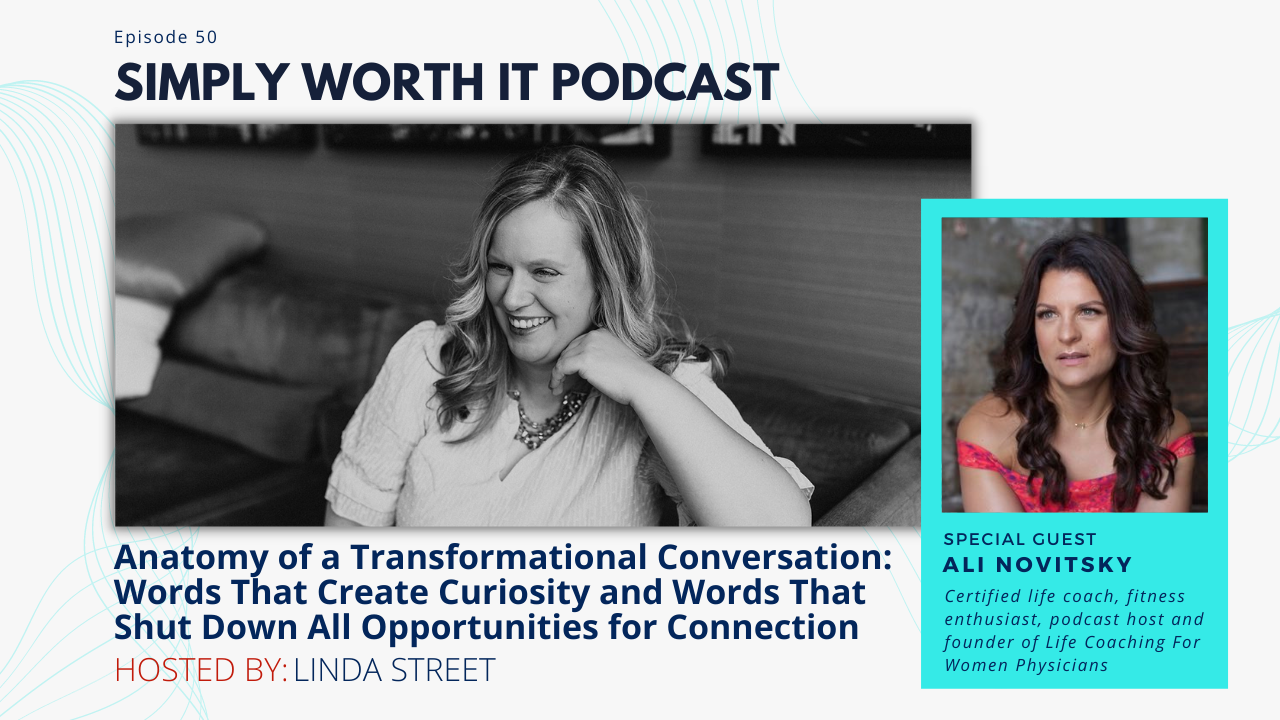
Three Things You’ll Learn In This Episode
- How to take the cortisol out of our conversations
What are the limiting beliefs we have about ourselves and the judgmental beliefs we harbor about others that hamper positive, transformational conversations? - Why it’s okay to change our minds
What we wanted yesterday doesn’t have to be what we want today. How do we create a space for open-mindedness for ourselves and others? - The chemic...
Anatomy of a Transformational Conversation: The 3 Levels of Conversation & How to Make Every Interaction Better w/Ali Novitsky
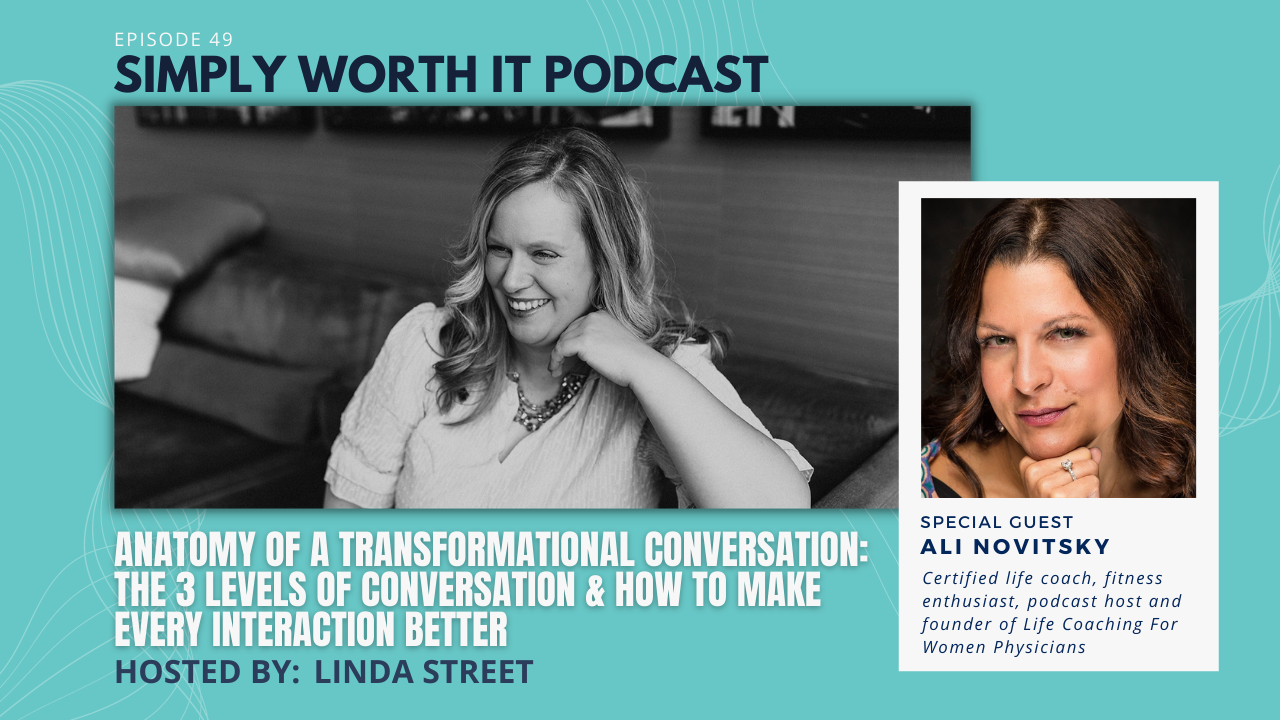
Human beings have conversations all day long, but there’s a big difference between conversations that move relationships forward and conversations that go poorly.
In order to take our interactions to the next level, and truly advocate for ourselves, we have to be aware of the different levels of conversations that exist - starting with how we talk to ourselves.
How do we create conversations that usher in connection and curiosity?
In this episode, I’m joined by my good friend, physician, life and fitness coach, Ali Novitsky. In the first of a two-part series, we’re going to talk about how to have more amazing conversations, even with ourselves!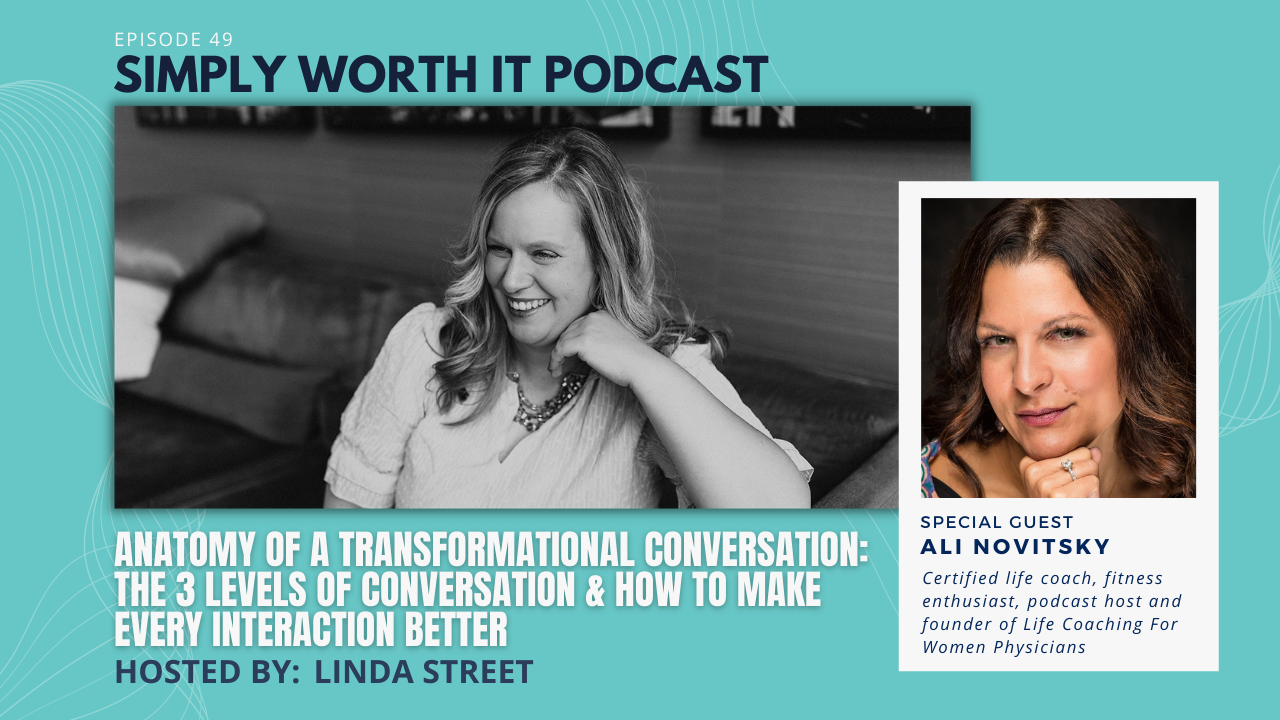
Three Things You’ll Learn In This Episode
- Why some conversations make an impact and others don’t
What are the different types of conversations we can have, and what purpose does each level serve? - How to create a safe space in our conversations
The best conversations come from being on the same level as other people. Is there a tactic we can...
These Powerful Communication Skills Will Move Your Next Negotiation (Or Holiday Family Interaction) In the Right Direction

At the negotiation table, good communication skills are an absolute must. We have to find ways to align with the other side, understand their perspective and create a high-trust environment.
What if I told you that these skills are just as necessary at the family gatherings we’re going to be having over the next few weeks?
Holidays can be joyful and fun, but being around family can also be stressful. We still need to communicate intelligently, and avoid adding fuel to the fire in highly charged conversations.
What are 3 communication skills that will serve us in every area of our lives? How do we set aside our own agenda, and break down barriers through the conversations we have?
In this episode, I talk about the communication skills we all need to nurture, and why the holidays are a great time to practice them!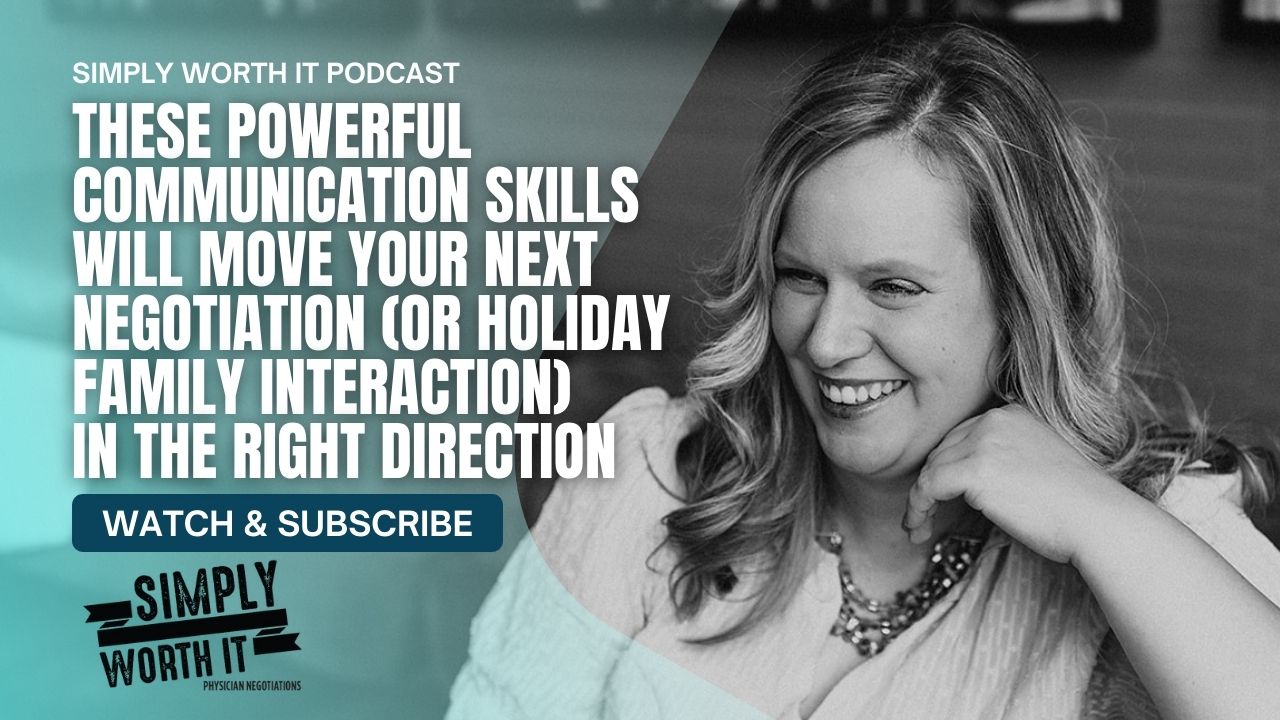
Three Things You’ll Learn In This Episode
- The power of intelligent communication
How do we listen on a deeper level so we can pick up on useful cues and pieces of informatio...
The Ultimate Guide to Clinical Medicine Models From Academia to Private Practice & How to Find the Right Path For You

Many people believe that clinical medicine is a straight and narrow road with no wiggle room or options - once you pick a model, you’re stuck with it forever.
The path of patient care isn’t rigid at all...there are a few ways for us to treat patients without being pigeonholed into one way to practice.
What are the different models for working and earning money? If we crave a little more freedom and flexibility, what’s the best path?
In today’s episode, I talk about the different models clinical physicians can choose, and why knowing all the options gives you an advantage at the negotiating table.
Three Things You’ll Learn In This Episode
- The pros and cons of practicing medicine under a corporate employer
Is autonomy possible in the corporate medicine model, or do we give up flexibility for stability? - Why private practice can be a great fit
There’s a lot less red tape when you’re running your own practice, but what are the risks of running your own business? - How to get more out of ...
Medicine & Career Transitions: The Natural Progression We Have to Embrace & Stop Feeling Bad About

Change is a natural progression of our lives and careers - even as physicians. We won’t remain the same people we were when we started practicing medicine, and that’s a good thing!
Shifting our jobs to something that aligns with who we truly are should be celebrated, and we should always be able to advocate for the changes we want. Whether we’re taking on a new role, changing practices, or modifying our schedules, pursuing something different is a sign of growth, not a setback.
How do we advocate for ourselves at these transition moments? Why do we need to celebrate career shifts instead of judging them?
In this episode, we’re going to talk about inevitable career transitions and how to negotiate when they come up.
Three Things You’ll Learn In This Episode
- Why we need to embrace alternative paths
In medicine, it’s so easy to celebrate one path over another. How can we learn to embrace people choosing what aligns with them, even if it’s not the “normal” journey? - The truth about tra...
The Operating Leverage Concept: Why It's VERY Relevant to Physicians & How to Get it to Work in Your Favor
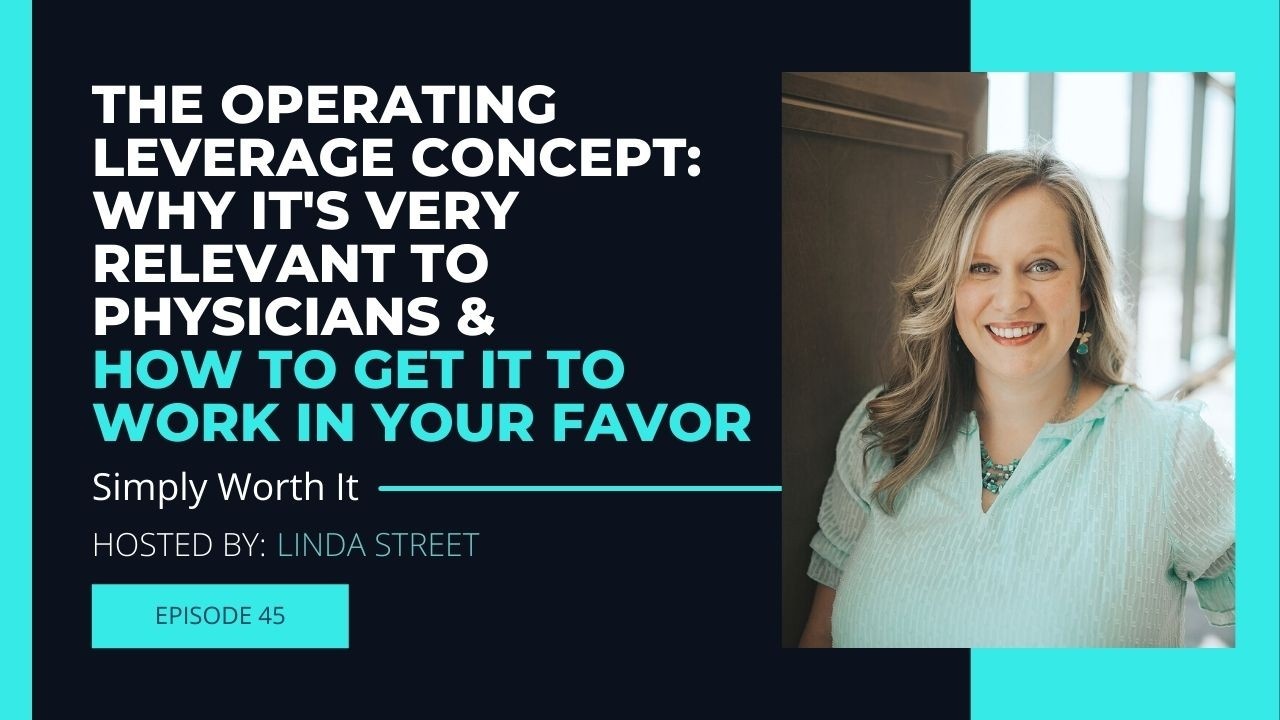
In the context of business, operating leverage dictates the health and value of a company. As physicians, we can use this concept to evaluate what we get out of our jobs, and make sure it’s giving us more than it takes from us.
If our jobs deplete us so much that we end up running on empty, it’s time to dig into the operating leverage of daily work, and consider some micro-negotiations that can make it better.
How do we calculate our own operating leverage? If our job is taking more than it’s giving us, what changes can we make? In this episode, I talk about how we can get the operating leverage equation to work in our favor.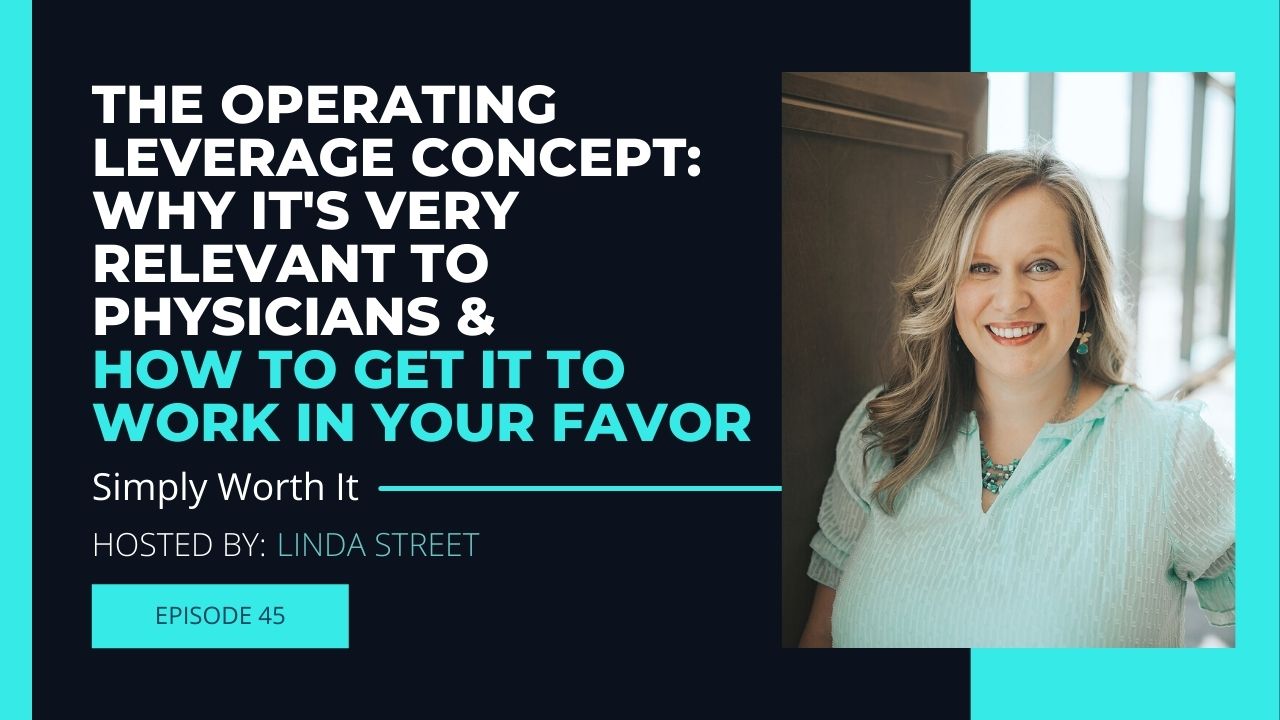
Three Things You’ll Learn In This Episode
- The ideal work environment for physicians
What factors make a job somewhere we can actually thrive, not just break even in terms of our energy? - Signs that our jobs are draining our energy in an unhealthy way
How can we accurately pinpoint those bane-of-existence tasks that deplete our energy? - How to change your minds...
Emotional Childhood vs. Emotional Adulthood: A Valuable Lesson on Taking Control of Your Happiness w/Krista Olsen
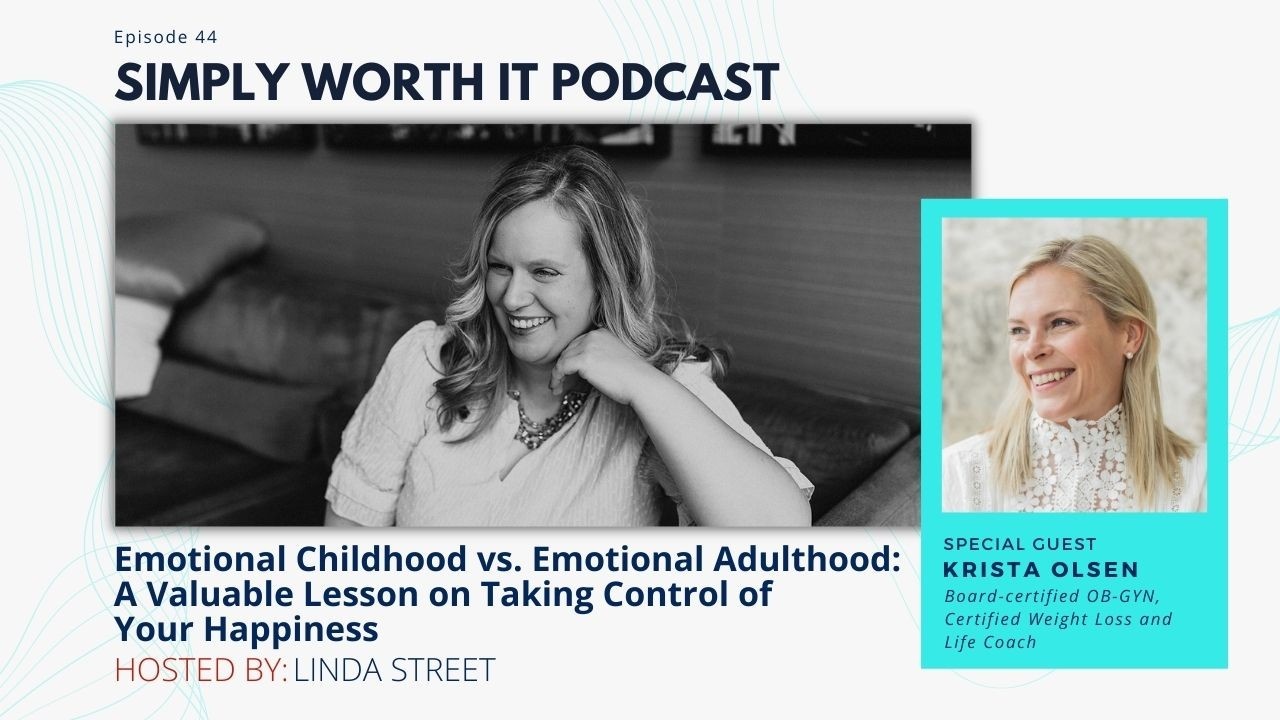
85 - 90% of adults function in emotional childhood. We outsource our happiness to others. We blame, rage, lash out and generally avoid taking full responsibility for how we think and feel. It’s what we’ve been taught our entire lives - but unfortunately what we’ve been taught significantly disempowers us.
The truth is, to have the lives we want, we have to move into emotional adulthood, but how do we change the way we’ve functioned for so long?
In today’s episode, we have a special guest taking over the Simply Worth It podcast. OBGYN and life coach, Krista Olsen shares the power of emotional adulthood and how to achieve it.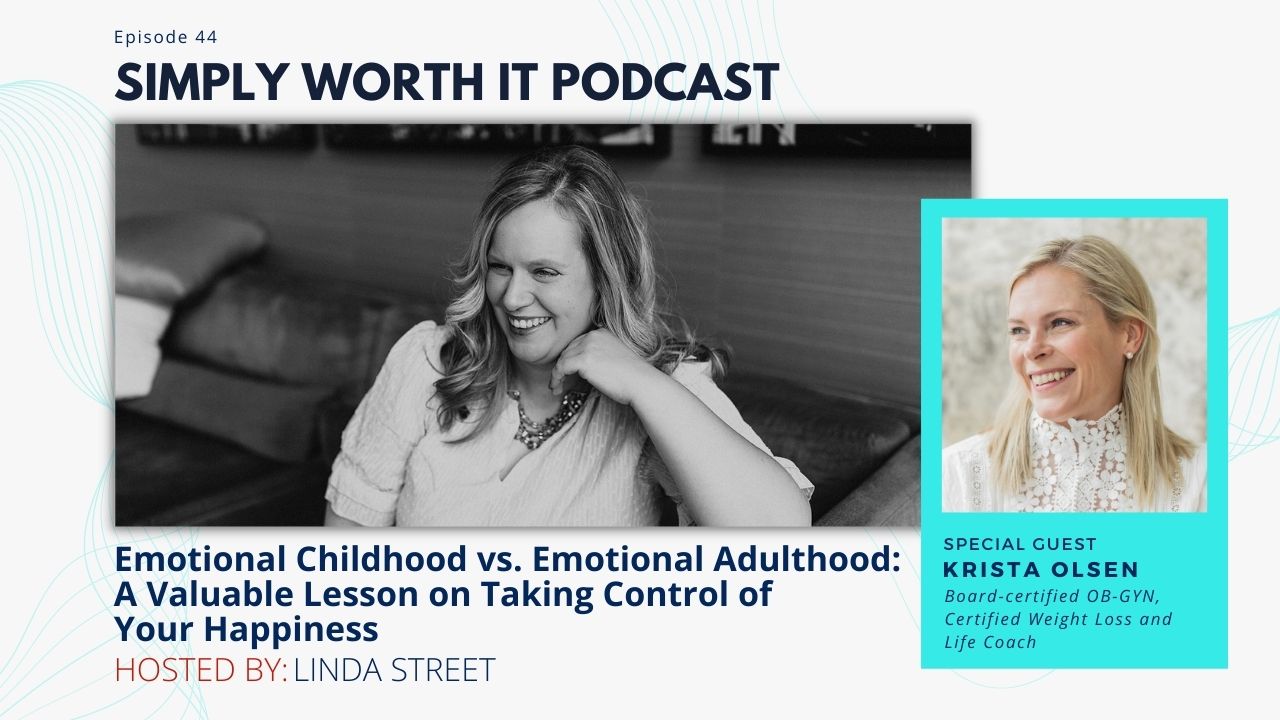
Three Things You’ll Learn In This Episode
- Emotional childhood vs. emotional adulthood
Emotional childhood is like putting your emotions on a silver platter and giving them to someone else. How do we stop letting others have so much power over us? - The two questions to constantly ask yourself
Who do you want to be and how do you want to act in this world? - Why em...
What Happens When Your Employer Suddenly Changes the Rules Mid-Contract?

Our employers are not past trying to change the rules of our contracts out of nowhere. It can feel like the rug has been pulled out from under us, but there is an opportunity to advocate to keep things the same, and show how that can benefit them.
How do you find a solution that meets their goals but honors your values? If you find out that your employer has a unilateral ability to change things, can you still negotiate on your own terms?
In this episode, we talk about dealing with changes in your contract when they don’t serve you.
Three Things You’ll Learn In This Episode
- How to deal with a change the employer is allowed to make
Sometimes the employer's right to make a change is buried deep in your contract and seemingly innocuous. How do you make sure it doesn’t come back to bite you? - Two ways to deal with a proposed change
If a proposed change to your job is not to your liking, should you try to negotiate to keep things the same or should you just walk? - How to advocate for yo...

